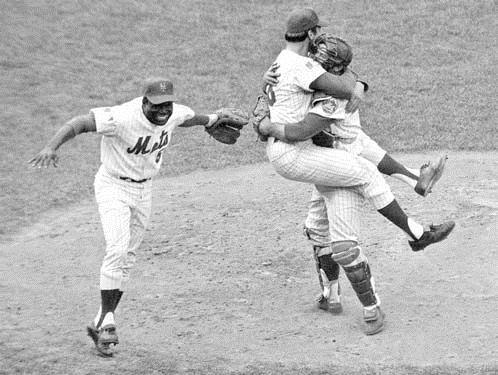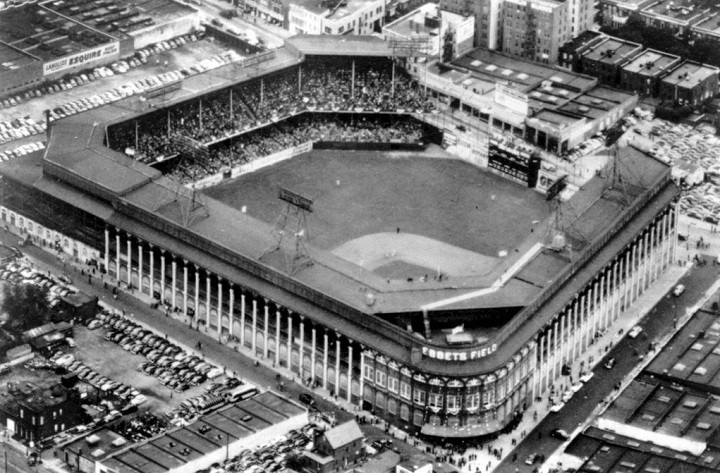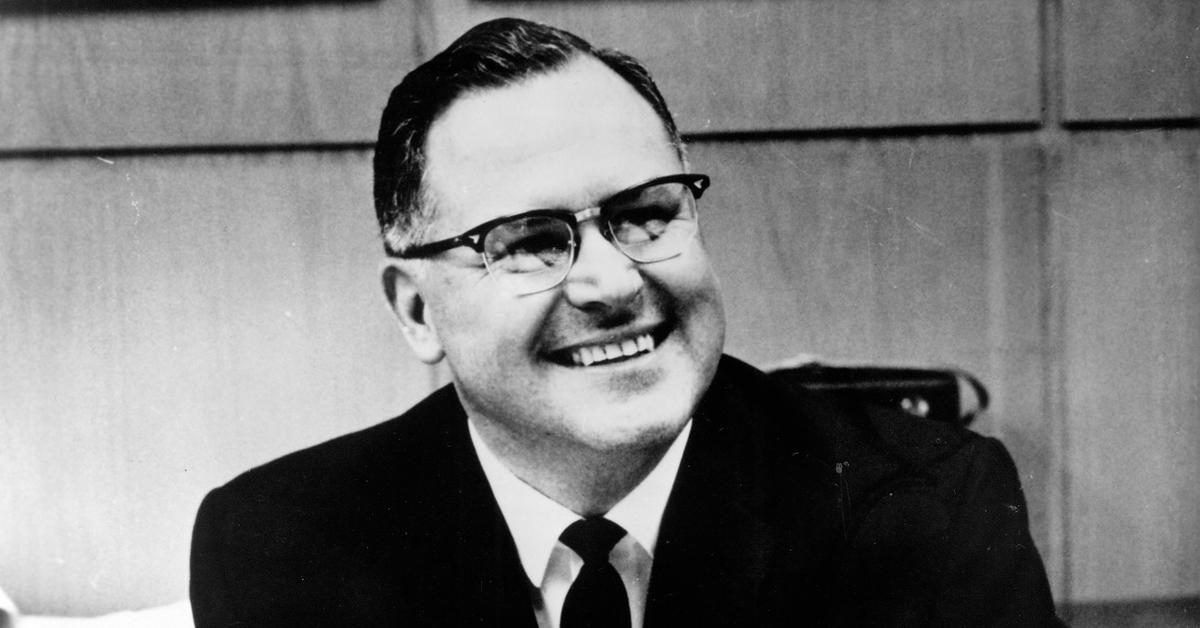The 1962 New York Metropolitans set a record for futility, losing more games than any team in Major League Baseball history.
Following the departure of the Dodgers and Giants to California after the 1957 season, William Shea led a group of city leaders to bring National League baseball back to New York. In 1960, the league agreed to expand, granting franchises to New York and Houston. Two years later, the Mets were born, playing home games at the Polo Grounds in Upper Manhattan while a new stadium was being built in Queens. Former New York Yankee GM George Weiss was brought in as team president, while Casey Stengel—who had guided the Yankees to ten pennants and seven world championships in 12 years—was hired as manager. The Mets took Giants orange and Dodger blue for team colors. The expansion draft provided name players whose skills had largely deserted them and were joined by several unknowns whose skills might never be discovered. New York selected seven former Dodgers and four ex-Yankees in the draft and only one of nine opening day starters—shortstop Felix Mantilla—was younger than 30.
After an Opening Day loss in St. Louis, the Mets, who were adored by hopeful New Yorkers thankful to have National League baseball back in Gotham, returned to Manhattan for a ticker-tape parade on lower Broadway the day of their home opener. They joy was short lived, as the Mets lost 4-3 and dropped their next seven games to start the season 0-9. The franchise won their first game April 23 in Pittsburgh but were 13-and-a-half games out of first place by Mother’s Day. By the All-Star break, the Metropolitans were 23-59, thirty-one-and-a-half back. New York’s roster included three future Major League managers; Don Zimmer, Roger Craig and Gil Hodges, who would guide the “Miracle Mets” to the franchise’s first world championship in 1969. Craig, who started the season as the ace of the pitching staff, led the majors in losses [24]. Right-hander Al Jackson was next on the list, with 20 losses. One Met made the 1962 All-Star roster—Richie Ashburn, who was in his final season—but he never appeared in the game. By 1964, not one of the nine players in the Mets inaugural Opening Day lineup was still with the team. Stengel, who had played for or managed all four New York teams, told reporters, “Come see my “Amazin’ Mets. I’ve been in this game a hundred years, but I see new ways to lose I never knew existed before.” The Mets went 19-37 in one-run games, won only 17 games in the second half of the season and finished last in the National League, 60.5 games behind the first-place San Francisco Giants [Daily Dose, July 29]. Their 120th loss came on September 30—the final game of the season—at Wrigley Field in Chicago. Despite the futility on the field, fans came out in droves, as over 922,500 patrons visited the Polo Grounds—good enough for sixth in the National League that year.
The New York Mets’ first team was their worst team. Former pitcher Jay Hook, who earned the first win in team history, said, “I never thought we were as bad as we turned out to be. I thought every time we went out, we had a shot at winning.” The Mets were 40-120, setting a record for losses in a single season. They had losing streaks of 17, 13 and 11 games while their longest win streak was three games. Between July 7 and August 7, the Amazin’ Mets lost 22 games and won three. The pitching staff was the worst in baseball, featuring two hurlers who lost more than 20 games each. Mets pitchers allowed the most runs, gave up the most hits, and had the highest ERA in the majors. New York was last in fielding percentage and first in errors made, while the offense was last in MLB in hits and batting average [.240]. The “lovable losers” were outscored by 331 runs. Famed New York restauranteur Toot Shor made his son watch the Mets lose game after game, “So the lad would know what the Depression was like.” In a mound meeting during the 1962 season, the 71-year-old Stengel asked his starting pitcher, Bob Miller, how he felt. “I’m not tired,” Miller said, to which the Old Perfessor replied, “You might not be, but your outfielders are.” Bill Veeck, former owner of the lowly St. Louis Browns, “They are without a doubt the worst team in the history of baseball, and I speak with authority.” Midway through the 1962 campaign, Mets first baseman “Marvelous” Marv Throneberry tripled, only to be ruled out for failing to touch first and second base. Shortly thereafter, Stengel announced to his team, “There will be two buses to the park from the hotel today. The two o’clock bus is for those who need a little extra work and then there will be an empty bus leaving at five o’clock.”
On this date in 1962, the New York Mets played the first game in franchise history, losing 11-4 to the Cardinals before 16,147 spectators at Sportsman’s Park in St. Louis.









